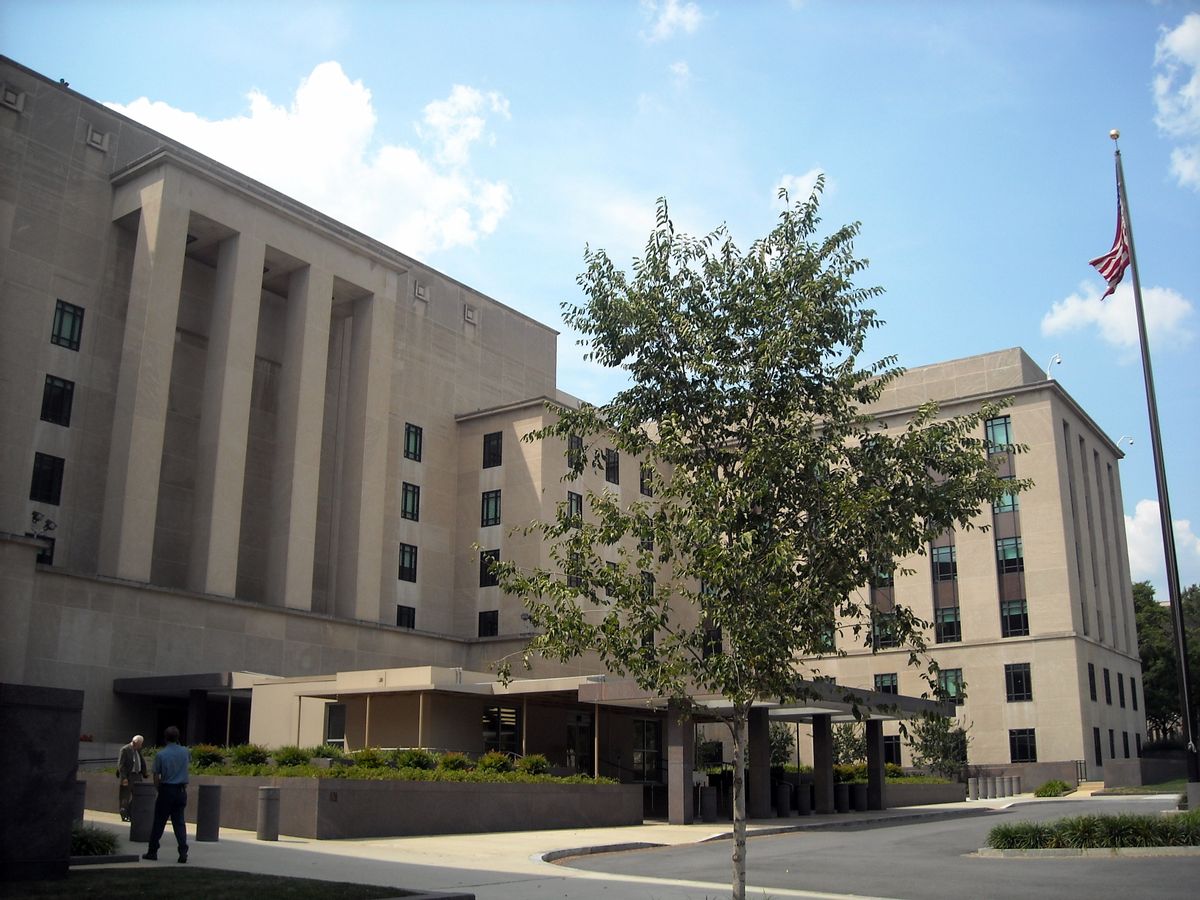I hope you had a nice weekend cowering in your home, refusing to leave or answer the door, in accordance with orders issued by the United States Department of State. On Friday the department issued a "worldwide" travel alert, lasting until the end of August, sort of generally alerting traveling Americans that terrorists exist and intend to hurt us.
Terrorists may elect to use a variety of means and weapons and target both official and private interests. U.S. citizens are reminded of the potential for terrorists to attack public transportation systems and other tourist infrastructure. Terrorists have targeted and attacked subway and rail systems, as well as aviation and maritime services. U.S. citizens should take every precaution to be aware of their surroundings and to adopt appropriate safety measures to protect themselves when traveling.
Just a reminder: Your life is in peril. Terrorists could attack anything at any time using "a variety of means and weapons." Have a kick-ass summer!
We needn't be entirely cynical about this. Twenty-two embassies and other diplomatic posts have been closed in the Middle East and North Africa. Unlike similar vague warnings in the past, this one is not suspiciously close to Election Day. There is likely some genuine intelligence about some sort of attack that led to this. But that raises questions posed by Philip Bump this weekend: If the American intelligence community was crippled by the recent leaks about its operations and tools, as so many have claimed, how did it manage to collect the intelligence that led to this alert? The head of the National Security Agency told us that the terrorists read all those Guardian stories and immediately took action. Presumably they now no longer use "telephones" or "the Internet," whereas before they were all blissfully unaware that the United States had the ability to spy on them at all.
So maybe comrade Snowden's leaks didn't cripple the NSA? Perhaps the NSA, and our other intelligence-gathering agencies, can still monitor the communications of terrorist organizations despite the fact that people know that our intelligence-gathering agencies are trying to monitor the communications of terrorist organizations. (I mean, how could it have been news to them? Have they not seen "Homeland"?)
In honor of this vague scary warning, a phalanx of pro-intelligence lawmakers and commentators hit the Sunday Show circuit yesterday to argue that our national security state is both effective and vital. These threats, about which the public can have no details other than that they exist, are serious. As Lindsey Graham said, since hashtag-Benghazi, "these al-Qaida types are really on steroids." (Al-Qaida types now face a lifetime ban from Major League Baseball.) Graham also said that the NSA is "proving its worth yet again," since presumably it is responsible for the intelligence that led to this vague panic. So, again: If the NSA was able to discover whatever threat we are currently facing, how badly could the revelations from Mr. Snowden have damaged the agency? If revealing the capabilities and actions of the NSA was a treasonous act, why is Lindsey Graham on television talking about all the important terrorist-monitoring work the NSA does?
CNN reports that an intercepted message "among senior al Qaeda operatives" led to the alert and embassy closings. Lawmakers like Graham, Saxby Chambliss and Peter King all went on television yesterday and essentially confirmed that the U.S. had access to this message involving "high-level" al-Qaida people. And now these terrorists know that we are monitoring them, correct? I thought we weren't supposed to tell them!
One problem with the entire argument over our massive largely unchecked surveillance state is that the people in charge of it have rather a lot more information about it than the people opposed to it, and they can (and frequently do) use that informational advantage to defend it in ways that are hard to argue against. So now we are being told that the very programs that we have been fighting about led to this information that may save lives. But we can't know if that's true. What we can do is say that "effectiveness" is not the criterion we should be using when it comes to government programs that violate civil liberties. Establishing a totalitarian police state would be quite "effective" in fighting terror and maintaining law and order, but most people, besides perhaps Peter King, would oppose such a state on principle. Whether or not a terrorist action was or will be disrupted by intelligence gathered by the NSA this month should have absolutely no bearing on the debate over whether the NSA is violating the law.

Shares